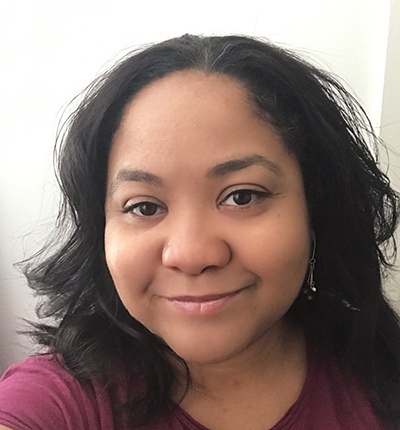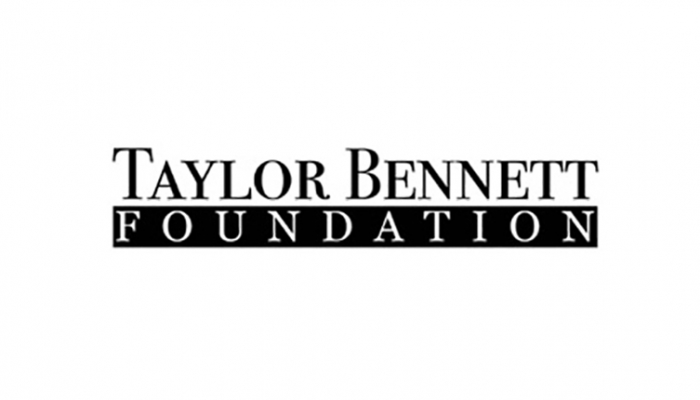Spotlight on the Taylor Bennett Foundation, with chief executive Melissa Lawrence
Having worked in the charity sector for over 20 years with a focus on mobility and diversity, Melissa Lawrence was drawn to join the Taylor Bennett Foundation and its mission to improve ethnic diversity in the PR and communications industry.
Bringing her experience with developing education, training and employability programmes for the financial and professional services sector to the role, Melissa and her team work to mentor BAME candidates for meaningful comms careers in an industry still struggling with the issue of equality, both at the hiring stage and at boardroom level.
As every industry across the world questions what it can do to fight racial inequality within its ranks and support those harmed or held back, Melissa shares what the foundation is doing to help, and how we can all take action to make things better.
‘Only 8% of the communications industry identify as an ethnic minority,’ says Melissa. ‘That is woefully low’.

What originally got you into the comms industry, and why is it a great career path for your candidates?
Before I joined the Foundation, I knew very little about the comms industry. However, I did a lot of preparation for my application and the more I learnt about it the more interested I became.
Communications and Public Relations as an industry is a fantastic career option to consider. Comms can provide a great career path for our candidates because there are a wide range of opportunities to choose from.
Communications is needed in every sector and discipline; it is fast paced, there’s lots of variety in the work and most importantly, you can build a professional career and earn a good salary while doing so.
With what’s happening across the world in reaction to racial injustice, has the foundation had to rethink its strategy and focus for the upcoming months?
Our strategy and focus is still highly relevant now, perhaps more so. The Taylor Bennett Foundation has always championed equality, diversity and inclusion. We stand against racial injustices and with all that is happening across the world, we have a renewed resolve to push forward with our work. We have been delighted with the number of agencies and in-house teams who have been in touch recently, offering to work with us and donating to the Foundation.
Many brands and celebrities have been criticised over the last weeks for their responses to the #BLM movement – which responses were well-judged? And which brands should be doing better?
I think Glossier responded well, and PrettyLittleThing could have done better. But these are difficult times and difficult issues – the most important thing is to ensure that any response is made with the lived experience of those involved in the #BLM movement at its core.
What are some of the big reasons that brands need to be more focused on diversity and increasing/amplifying BAME voices?
It’s important to amplify BAME voices because they are the voices of those whose experiences have often been marginalised. You get to hear directly from people about their lived experiences and this often leads to positive changes. We are seeing real examples of this right now. Plus, many big brands do not have diverse communications and marketing teams; this is why the Foundation’s work is so important.
What should agencies be putting in place to ensure their hiring practices are fair, and to ensure candidates from a wider variety of backgrounds apply for roles at their firms?
There are a number of things that agencies could do, starting with ensuring that their opportunities are shared in a more transparent way. Many roles are often shared first with candidates that are former colleagues and friends, and on company websites or social media. There are lots of agencies in the industry and if candidates do not know who they are, it’s difficult for them to find the roles. We have a jobs page, so we can help.
For agencies thinking about encouraging diverse applications and putting in measures to do so, I encourage them to develop a thorough recruitment strategy and audit their recruitment process frequently to ensure it’s giving them the desired results they want.
How has the COVID-19 pandemic impacted the Taylor Bennett Foundation summer PR training programmes?
COVID-19 has meant that we have had to push the dates for our PR Training programmes back, so our summer programme will be shorter to accommodate our autumn programme. Also, as many offices remain closed until the autumn, the summer programme will be delivered in a virtual format. This is a first for us – there are going to be some challenges, but we are excited about taking on those challenges and making a success of the programme. We are fortunate that Brunswick, the sponsoring agency, remains totally committed to making it work and are supporting us now more than ever.
Can you share some of the big success stories from the programme?
Last year, 18 graduates went through our PR Training programme and 100% of them went straight into jobs or fixed term contracts within the industry. This year, four of the six graduates from our first programme have secured full time jobs. Three were with their host agency. COVID-19 and lockdown put a stop to the other two graduates securing roles, but I am hopeful that now things are easing, we can support them into jobs. If anyone wants to get in touch with me about those individuals, or indeed anything else about the Foundation, I am always keen to make connections.
Read more about the Taylor Bennett Foundation and its PR Training programmes here, and find Melissa Lawrence on Twitter @MLucien17.








Leave a Comment